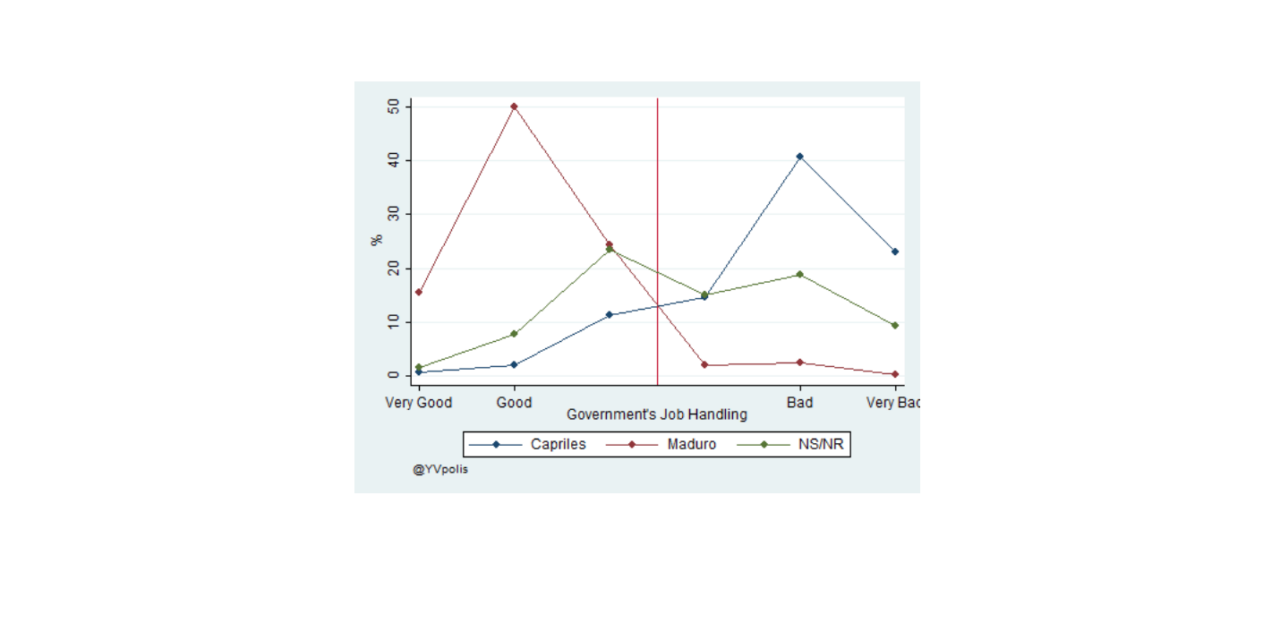This post can be read in Spanish at YV Polis.
During the past week I was able to obtain cross tabulations of different variables for two different polls. The first poll of IVAD shows Maduro leading Capriles 52.3% – 31.8%, this survey was fielded the week ending on the 23rd of March. The second poll is by pollster DatinCorp (of which I have little reference information) and gives Maduro 45.86% of intended voters’ support versus 38.42 for Capriles. This survey closed its field work on the 18th of March.
Both of these polls, as well as other that have been published, show an electoral scenario with little hope for opposition candidate Capriles. When we look at the polls in detail, however, we can see on possible path (a narrow one) to victory for Capriles. This scenario is based on two very important voting blocs. The first group is composed of likely Maduro voters who have a critical view of the government’s job performance. The second group is composed of those voters that do not manifest an explicit intention for how they will vote but whose profile inclines towards the opposition more so than towards the government.
In the following graph-made with aggregate figures from IVAD’s poll-these groups can be seen clearly. In it the red line shows the percentage of respondents intending to vote for Maduro and their approval of the government. The blue line shows pro-Capriles voters; and the green line shows the Don’t know/Didn’t answer group (representing 16% of IVAD’s sample). As the graph shows there is a clear relationship between those who give a positive job approval to the government and those with intention to vote for Maduro. The same can be said of those with a negative evaluation of the government’s job and who are more inclined to vote for Capriles. The group of non-respondents is in between the pro-government and pro-opposition sides; however, at the aggregate level, they look to lean closer towards the opposition.
Based on this information the Capriles campaign should be asking two questions:
1) How can they get that 20% of pro-government supporters and 20% of non-respondents to change their vote to Capriles (i.e. how can they make them move from a “regular” to “bad” view of the government’s work)? Or how can they get them to stay home on election day (a majority of voters in this group are already inclined to not turnout to vote)?
2) How can they make sure that the 45% of non-respondents with a negative job approval evaluation turnout to vote for Capriles?
Of course, the Maduro campaign will be trying to find opposite answers to these questions (i.e. how can we mobilize our group and demobilize theirs).
Iñaki Sagarzazu is a Lecturer in Comparative Politics at the University of Glasgow and author of the blog YV Polis.



